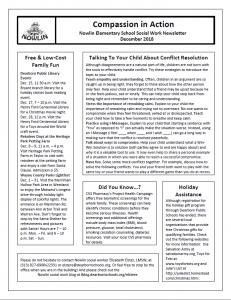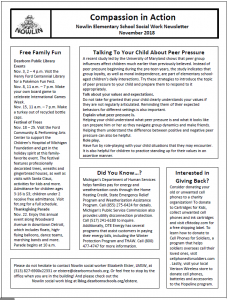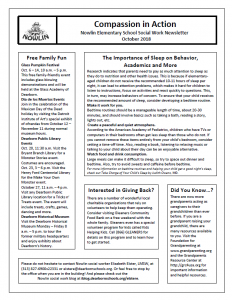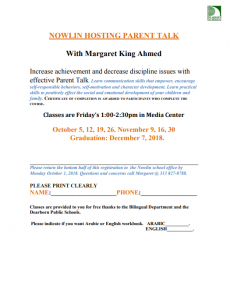The Importance of Extracurricular Activities
A new report from the U.S. Census Bureau shows that children tend to have higher levels of school engagement when involved in one or more activities, like sports, lessons or clubs.
The report, “A Child’s Day,” found that 42 percent of children who took lessons were highly engaged compared to 33 percent of children who did not. The report also examined school engagement and other measures of child well-being.
Bright Nights Community Forum Event
How To Help Your Child Be More Forgiving
- Model forgiveness within the family. Parents can teach their children about the value of forgiveness by regularly practicing it in their own lives. A recent study found that parents who were more forgiving toward their children at the start of the year tended to receive greater forgiveness from their children at the end of the year.
- Support children’s capacity to respond to their strong emotions. Being able to control impulses may help children consider forgiveness as an alternative when they’ve been wronged by someone, rather than act on an impulsive urge to retaliate. Help your child become aware of, embody, and respond to various emotions through role-playing and other activities.
- Discuss how people sometimes do hurtful things by accident. Whether children forgive may also depend on their interpretations of others’ intentions. Young children may turn to their parents when they are not sure whether a peer harmed them on purpose, and that moment could be an opportunity to help children consider forgiveness.
Battling Against Hunger Food Drive
November 2018 Newsletter
State of Michigan Anti-Bullying Website
Check out Michigan’s official anti-bullying website, which includes resources and tips for students, parents and teachers.
https://www.michigan.gov/ok2say/
October 2018 Newsletter
Teaching Your Child To Care For Others
Each month, Nowlin focuses on a pillar of character. We meet as a school for a PBIS assembly and meet in small groups for an activity. November focuses on the pillar of Caring. Here are some easy tips parents can use to help their child act in an even more caring way towards others.
1. Be a role model. Our kids are soaking in everything we do and say. Make sure your child catches you acting caring and compassionate towards others. You might offer to help someone struggling to hold packages in line at the post office, call or send a card to a relative who is sick, or any number of other things. If you volunteer your time in a more formal way, make sure your child knows what you do and why it is important to you. Talk about caring as an important value in your family.
2. Use story or TV time to teach compassion. Reading a book or watching a TV show with your child provides a great framework for talking about caring and compassion. Help your child think about what motivates a character by asking, “What were they thinking or how were they feeling when they said or did that?” Since we all want to teach our kids the consequences of their actions, a good follow up question could be, “How do you think that made the other person (or animal, if relevant) feel?” And of course, if one of the characters in the book or show misses an opportunity to be kind ask, “Why do you think they chose not to do anything?” Finally, help your child connect what they are hearing or seeing with their own life. Asking, “What would you have done in that situation?” is a great way to do that.
3. Participate in a family activity. Volunteering can be a great activity for family time. As new activities begin in the fall, think about scheduling formal volunteer opportunities. Talk to your kids about starting the tradition of volunteering as a family. Some families participate in a food drive every year during a particular holiday time like Thanksgiving. Others commit to a particular walk-a-thon or park clean up each year. Let your kids be part of the planning process by helping choose an activity and/or a population to support. With younger children, you can provide a list of several choices and let them pick. Older children can help you research different volunteer opportunities in your community. Families often describe feeling closer, more like a team, and fulfilled when they share a volunteer experience together.





